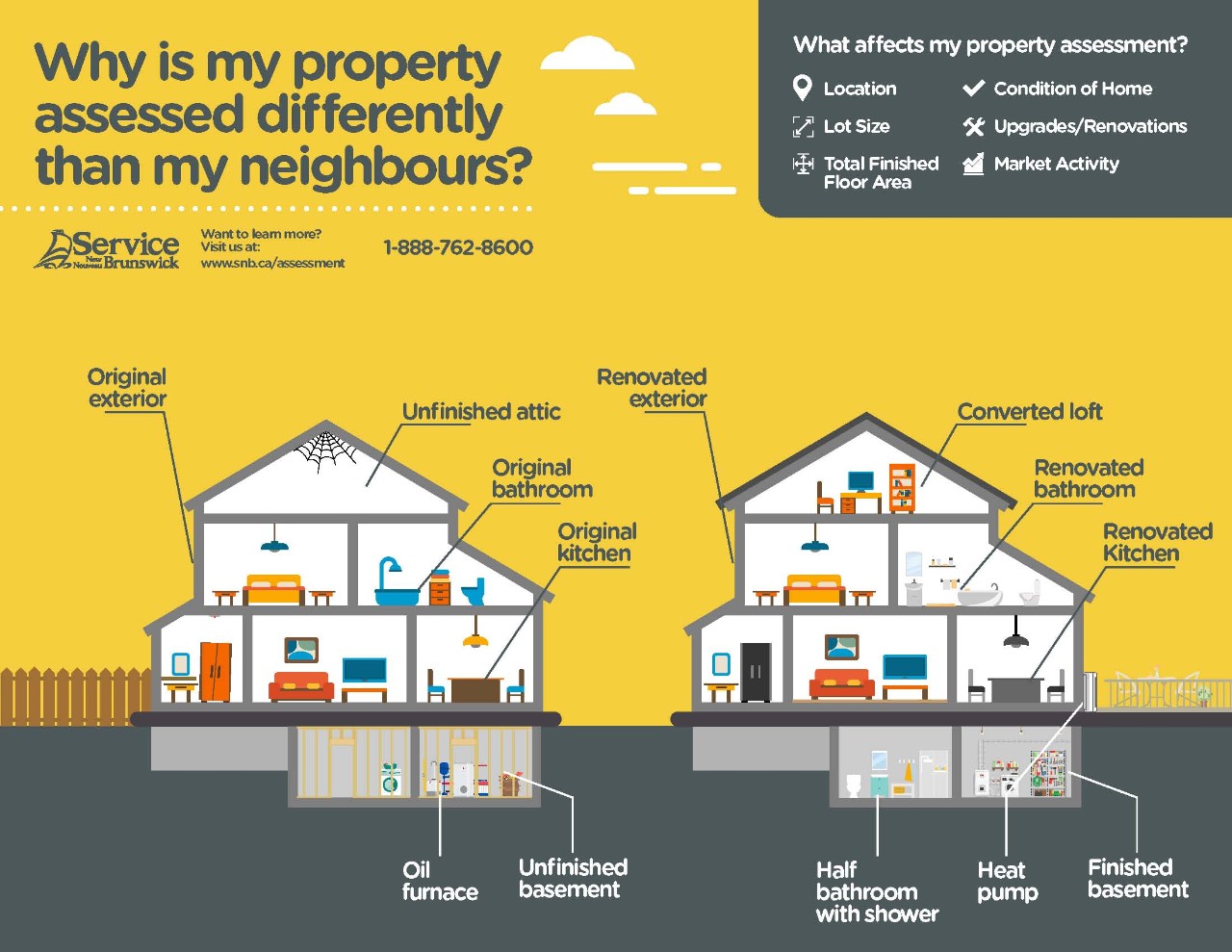Your property’s real property assessment value reflects its market value. Market value is the price that the property would likely sell for on the open real estate market on January 1 of the year preceding the year for which the assessment is made. It is the most common method of property assessment used in North America today..
Assessments are based on market value because market value is transparent (real estate prices are publicly available), easy to understand and a fair and realistic measure of a property's value.
We have a team of assessors who review the property assessment value of more than 480,000 properties throughout New Brunswick each year..
Our assessors aren't actually determining market value; they are simply reflecting the values that have been established by buyers and sellers in local real estate markets across the province.
But how do the assessors determine these values?



